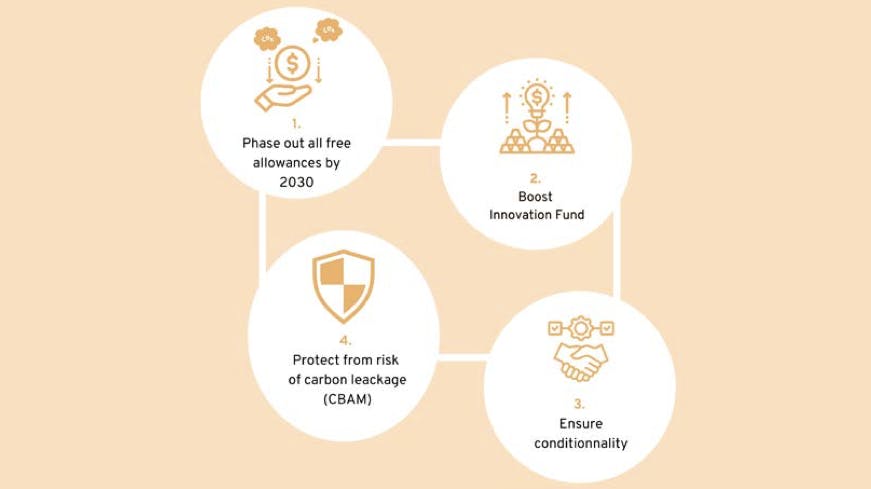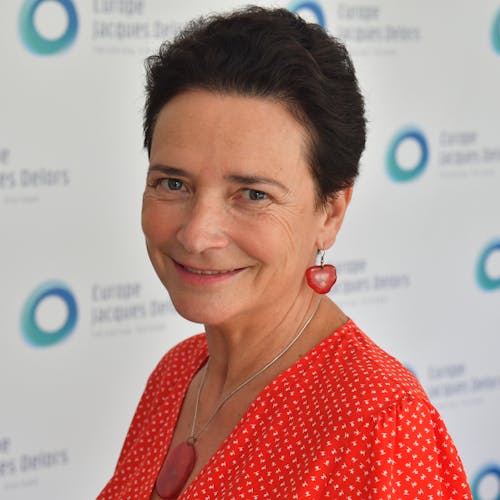No more free lunch. Ending free allowances in the EU ETS to the benefit of innovation
In a world where more than 80% of the global GDP is covered by a national climate neutrality target, we need an effective reform of the EU ETS. It must be aligned with the EU’s new climate objectives, and be able to bring clean industrial technologies from lab to market to secure the competitive sustainability of the European economy.
This policy brief focuses on EU ETS free allowances, which are given to most energy-intensive industries. Currently, 94% of industrial emissions are covered by free allowances[3], muting the carbon price signal and, therefore, the incentive to innovate and invest in cleaner production processes.
After laying out how the system of free allowances has worked so far, this policy brief provides recommendations on how policy makers can use the opportunity presented by the revision of the EU ETS to stop subsidising pollution and instead invest in innovation, kick-starting the decarbonisation of the EU energy-intensive industries.







